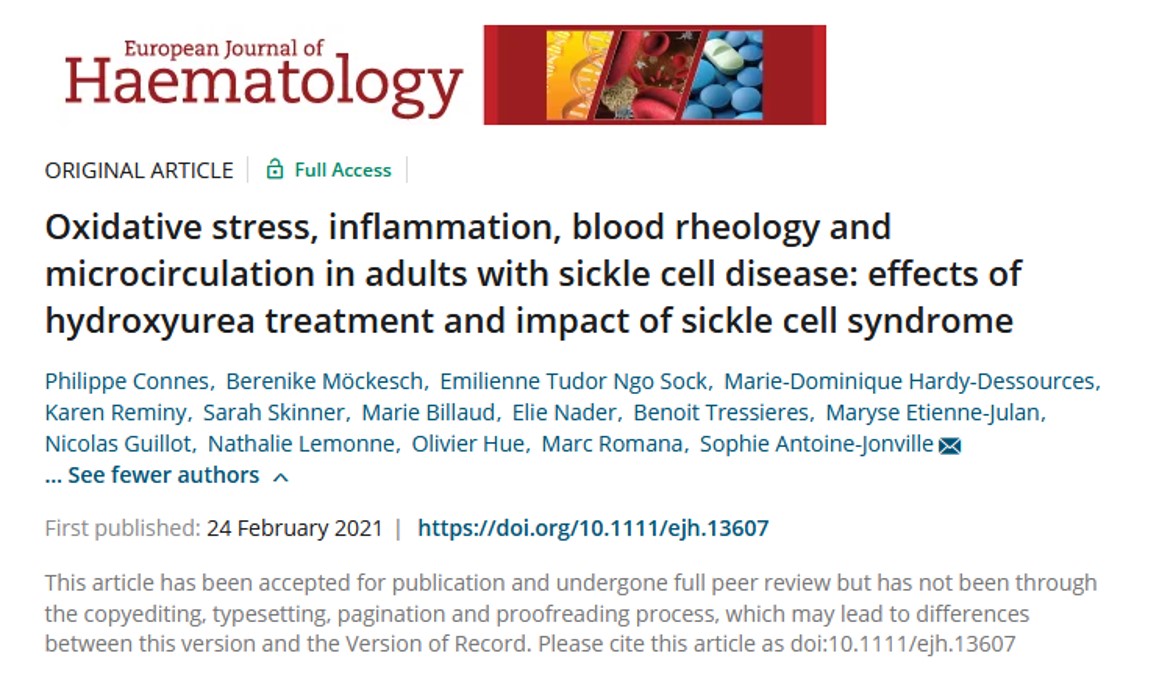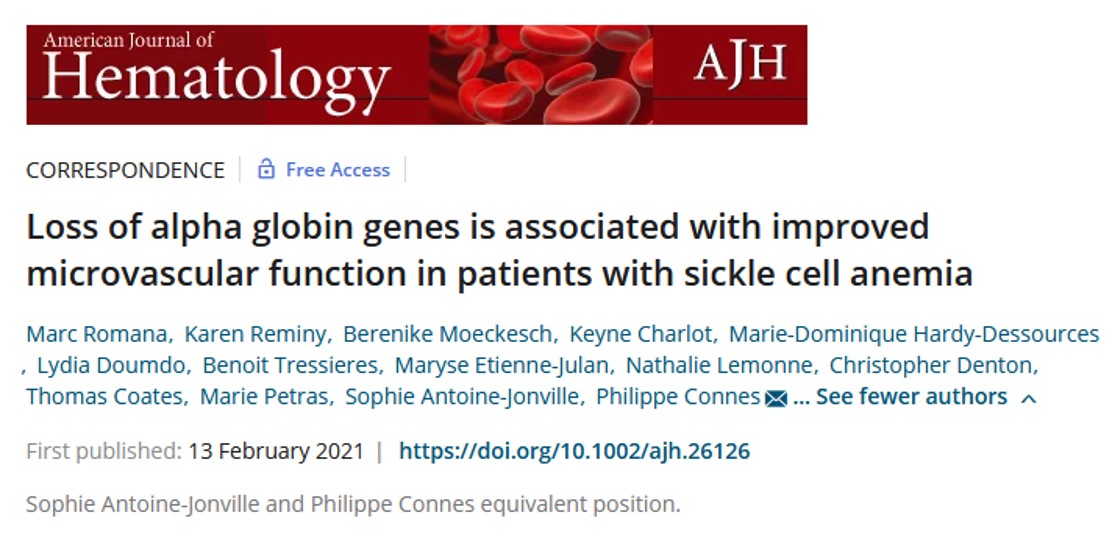2 nouvelles publications pour Sophie Antoine-Jonville en ce début d’année. Le Premier est un article original signé en dernier auteur dans l’European Journal of Haematology intitulé « Oxidative stress, inflammation, blood rheology and microcirculation in adults with sickle cell disease: effects of hydroxyurea treatment and impact of sickle cell syndrome ». Le second est une correspondance dans l’American Journal of Hematology intitulée « Loss of alpha globin genes is associated with improved microvascular function in patients with sickle cell anemia » et signée en co-dernier auteur par le Dr Antoine-Jonville.
Oxidative stress, inflammation, blood rheology and microcirculation in adults with sickle cell disease: effects of hydroxyurea treatment and impact of sickle cell syndrome
Abstract
Inflammation and oxidative stress play a key role in the pathophysiology of sickle cell disease (SCD). However, the potential influence of different sickle genotypes, or hydroxyurea (HU) treatment on these factors remains poorly documented. The present study compared several plasma markers of inflammation and oxidative stress, as well as microvascular function, between patients with sickle SC disease (HbSC, n=19) and patients with sickle cell anemia (HbSS) under hydroxyurea (HU) treatment (n=16), or not (n=13). Hemorheological parameters and levels of inflammatory (IL‐6, IL‐8, IFN‐γ, MCP‐1, MIP‐1β, TNF‐α) and oxidative stress (AOPP, MDA, MPO) markers were determined. Peripheral microcirculatory cutaneous blood flow and immediate microvascular response to local heat were evaluated using Laser Doppler flowmetry. Oxidative stress and inflammation were lower in HbSC patients and HbSS patients under HU therapy compared to HbSS patients not treated with HU. Blood viscosity was higher in HbSC than in HbSS patients treated or not with HU. Vasodilation response of the cutaneous microcirculation to heat stress was higher in HbSS patients receiving HU treatment. Our results clearly established that both sickle cell genotype and HU treatment modulate inflammation and oxidative stress.

